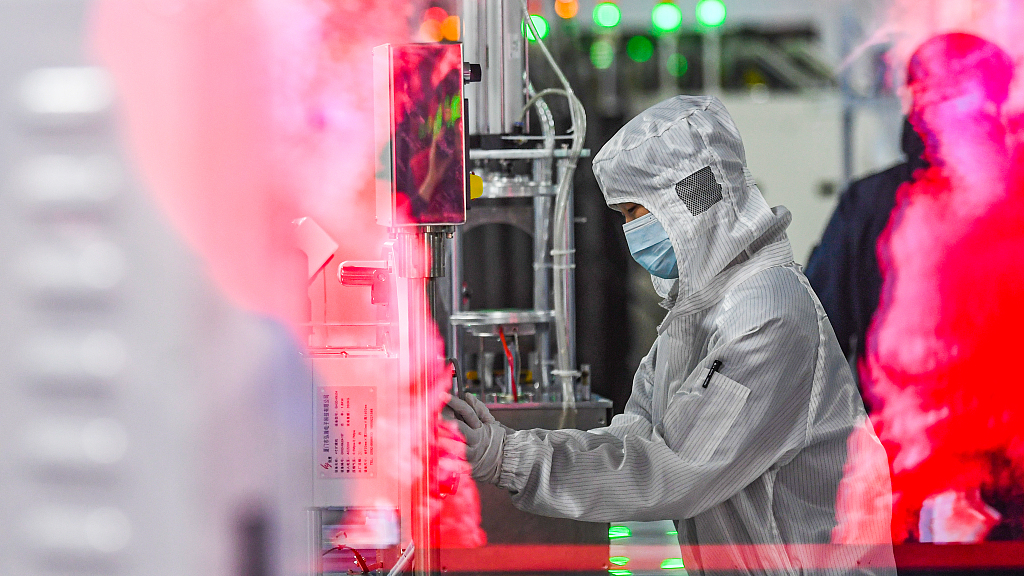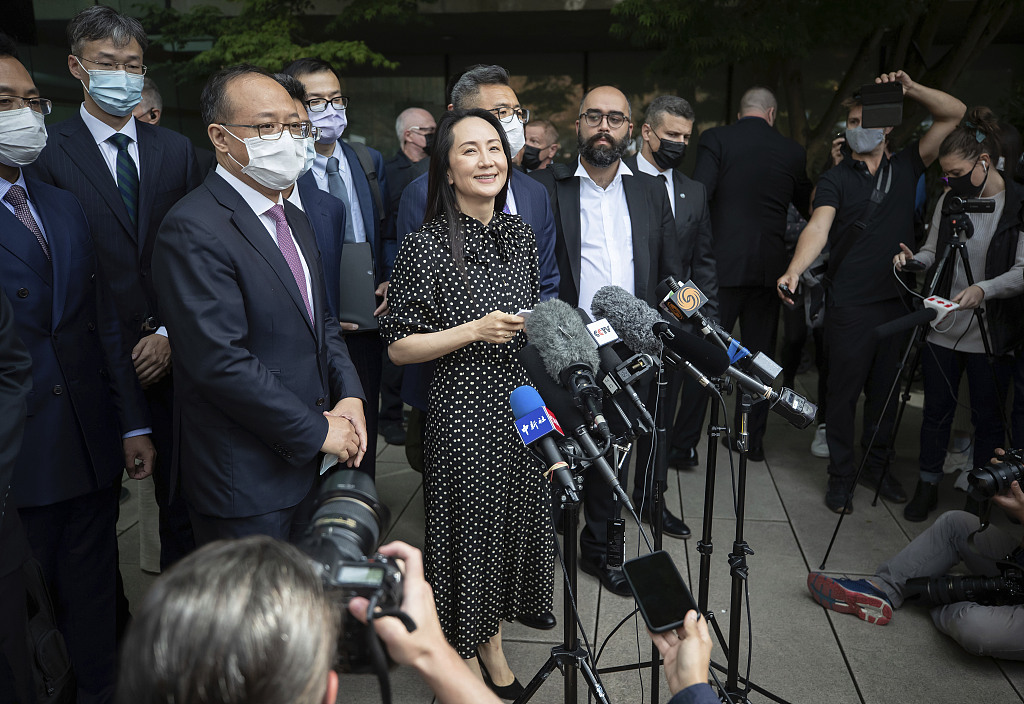
A technician works at the workshop of a chip production company in Yancheng, east China's Jiangsu Province, April 14, 2023. /CFP
A technician works at the workshop of a chip production company in Yancheng, east China's Jiangsu Province, April 14, 2023. /CFP
Editor's note: He Weiwen is a senior fellow at the Center for China and Globalization. The article reflects the author's opinions and not necessarily the views of CGTN.
Janet Yellen, U.S. Secretary of Treasury, reiterated the U.S. sweeping technology restrictions on Chinese companies on national security reasons, though she made a moderate tone by stressing the importance of U.S.-China economic and trade relations and rejecting de-coupling.
Different from the hawkish noise in the Capitol Hill, Yellen supported the relationship between the U.S. and China, saying that "we seek a healthy economic relationship with China: one that fosters growth and innovation in both countries."
However, it is the second priority. Yellen added that "As in all of our foreign relations, national security is of paramount importance in our relationship with China. For example, we have made clear that safeguarding certain technologies from the People's Republic of China's military and security apparatus is of vital national interest."
Yellen was apparently self-contradicting herself when she seeks a healthy economic relationship with China and pushes strong technology smashes on the country at the same time.
President Donald Trump's administration announced a killing ban on Chinese telecoms giant Huawei in late 2018 on national security narrative, asserting that Huawei's products might have a backdoor, threatening information security of the U.S. Trump also blocked chip supplies to Huawei, and the company's chief financial officer Meng Wanzhou was taken into custody in Canada for almost three years. The Joe Biden administration made no change to the Huawei technology ban.

Meng Wanzhou, chief financial officer of Huawei, reads a statement outside B.C. Supreme Court in Vancouver, British Columbia, Canada, September 24, 2021. /CFP
Meng Wanzhou, chief financial officer of Huawei, reads a statement outside B.C. Supreme Court in Vancouver, British Columbia, Canada, September 24, 2021. /CFP
In mid-2022, the U.S. Department of Commerce announced a sweeping ban on semiconductor technology exports to China, including 14-nanometer microchips, semiconductor manufacturing equipment, and electronic design software (EDA). It has also asked Netherlands and Japan to follow.
Through a fast-expanding "entity list," the Biden administration has put over hundreds of Chinese enterprises and institutions as targets of technology prohibition or restriction on the grounds of "national security," which Yellen endorsed in her recent speech. Again, no evidence has been given for the action.
National security is one of the clauses in the General Agreement on Tariffs and Trade and later World Trade Organization, which stipulates explicitly the definition and boundaries of its application. Washington is undoubtedly abusing the national security concept for its trade protectionism.
However, the fervent technology prohibition and restrictions on China have not quenched Huawei and other Chinese technology companies, nor strengthened the American tech giants.
Huawei, as a leader in 5G technology, still tries to maintain its cutting-edge advantages. Although its net profit in 2022 was 35.6 billion Chinese yuan ($5.2 billion), down 68.7 percent from 2021 amid U.S. sanctions and the pandemic, the company had its operation revenue at 642.3 billion yuan ($93.2 billion) in 2022, which rose by 0.9 percent year-on-year.
Because a much larger share of its revenue was devoted to research and development (R&D), which hit 161.5 billion yuan in 2022, accounting for 25.1 percent of the total revenue, higher than the American semiconductor industry average at 18 percent.
By the end of 2021, Huawei held over 110,000 active patents across over 45,000 patent families, more than any American company. Huawei has also announced that it has started cooperation for digitalization with 267 of the Global 500, or more than half of them.
The latest statistics show that China has 40.3 percent of world 6G patents in 2021, followed by the U.S. with 35.2 percent. Last week, China has just announced a major 6G technology breakthrough with the first real-time wireless transmission communication experiment using terahertz orbital angular momentum. Hence, Washington's real purpose in smashing Huawei might be to catch up with China in 5G technology and then prevail over China in 6G.
The chip ban on China has eroded the American semiconductor industry as well. Boston Consulting Group has estimated that the chip ban on Huawei has reduced the American semiconductor industry revenue by 48 percent. The U.S. semiconductor equipment export also fell by 50 percent due to the export ban on China. Jimmy Goodrich, Vice President of Global Policy at the Semiconductor Industry Association, said recently that the American semiconductor industry will continue to cooperate with China and he called on the U.S. government to support an open global semiconductor supply chain.
It looks certain that the sweeping technology sanctions on Chinese businesses will continue, or even escalate. Equally certain, the U.S. policies and actions will serve as a boomerang, hitting the U.S. companies and supply chain on the one hand, and making the Chinese companies even stronger on the other.
(If you want to contribute and have specific expertise, please contact us at opinions@cgtn.com. Follow @thouse_opinions on Twitter to discover the latest commentaries in the CGTN Opinion Section.)